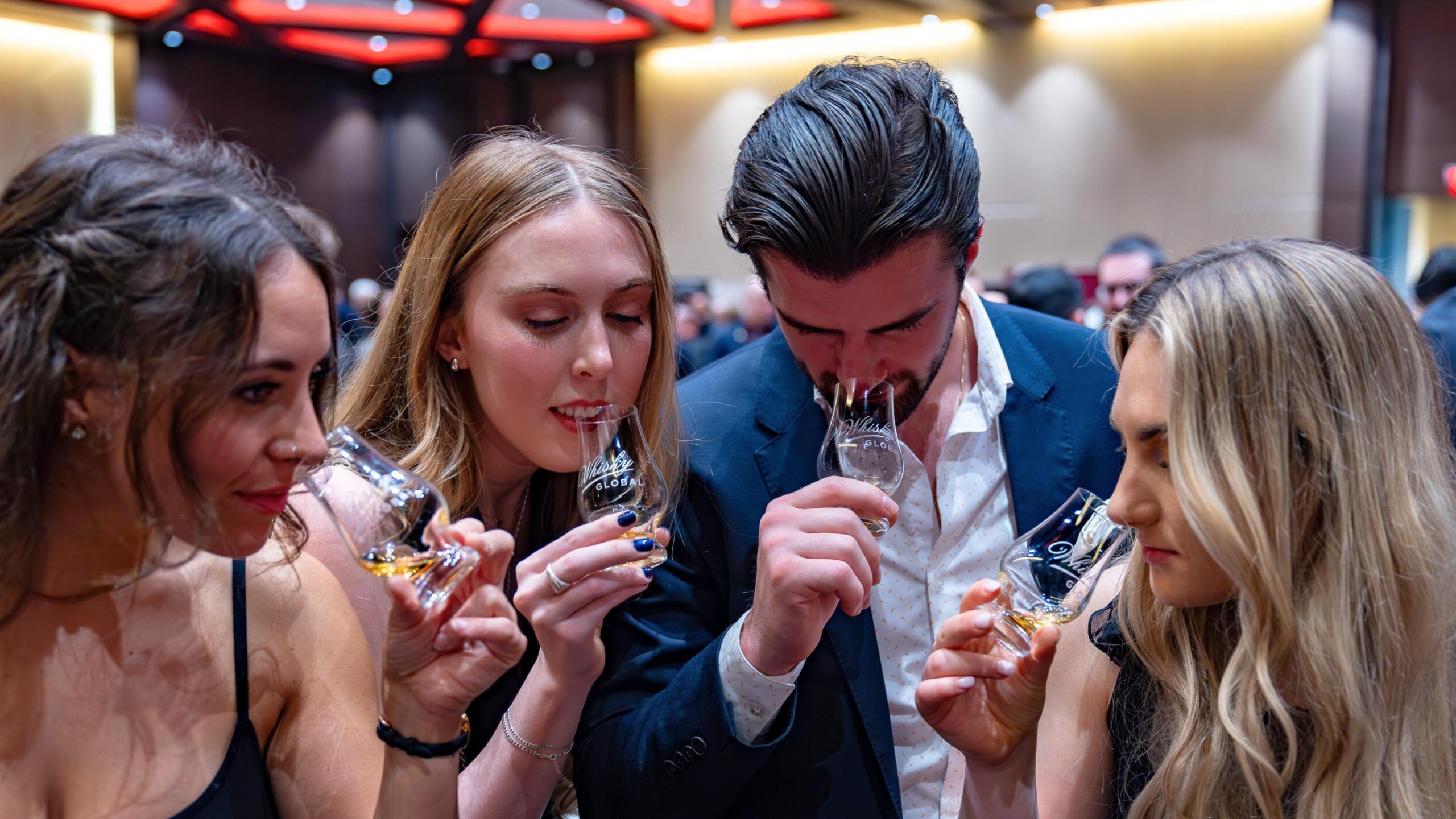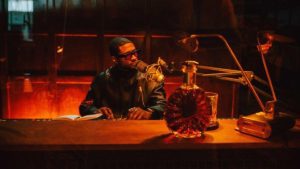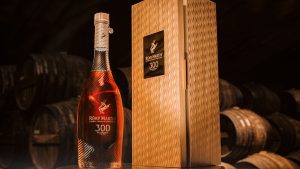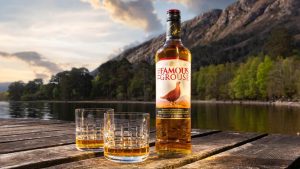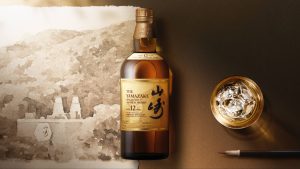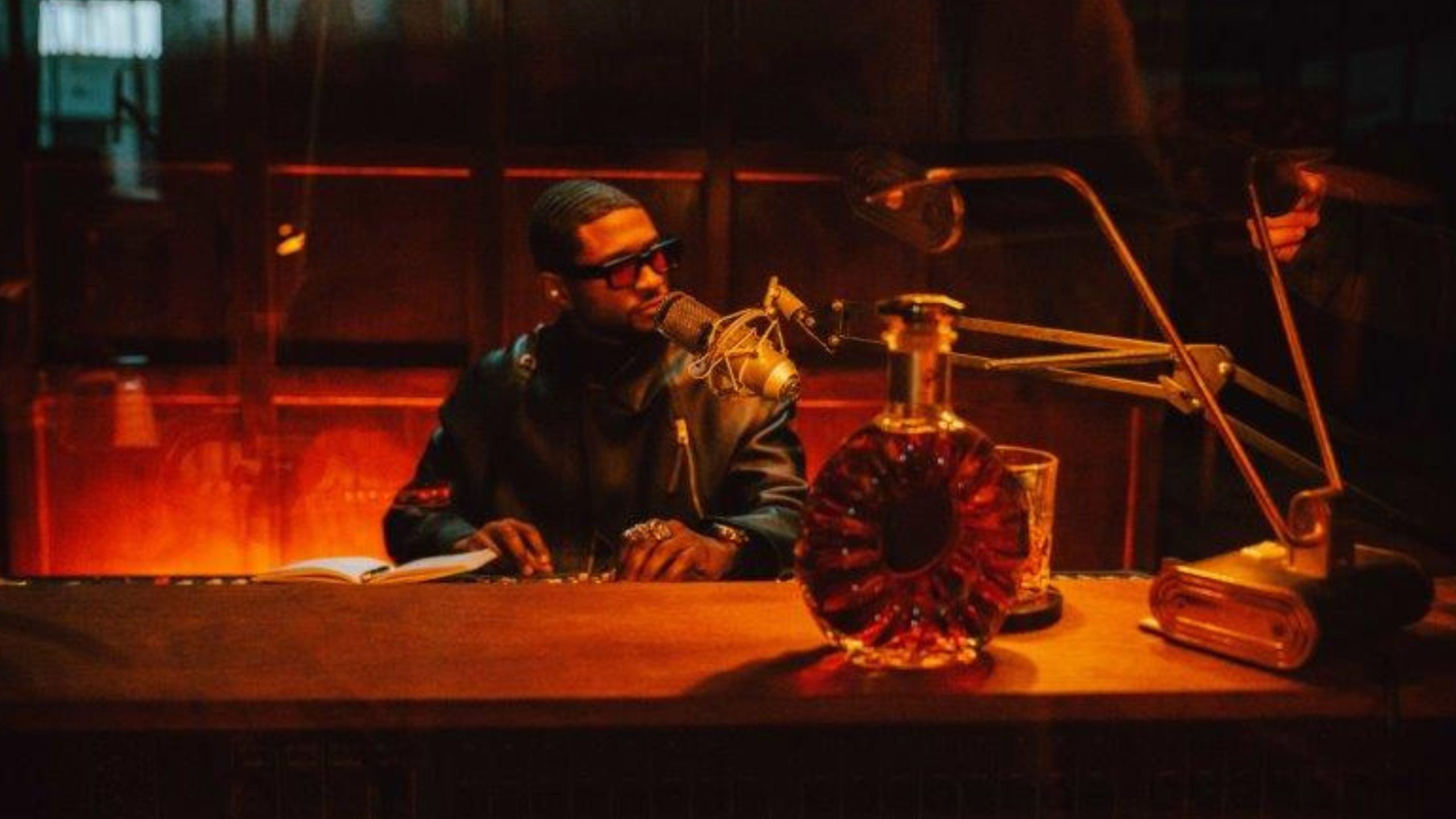Whisky Global is no ordinary tasting event—it’s a celebration of the craftsmanship, culture, and community that whisky embodies. Hosted across Canada (with upcoming stops in Toronto and Calgary), this exclusive gathering brings together enthusiasts and newcomers alike to experience rare whiskies from around the world. Imagine sipping on a 40-year-old Benromach Scotch, dressed to the nines, while mingling with fellow whisky lovers, discovering the art behind each bottle. With live music, gourmet food, and masterclasses led by top distillers, Whisky Global is more than a tasting—it’s a cultural event.
Leading up to the Toronto leg (October 19) of Whisky Global’s cross-Canada tour, GLORY chats with founder Adam Bloch about the whisky community, what to expect, and the bottles he’s most excited to showcase. Whether you’re a seasoned connoisseur or just curious, this is your chance to dive into a world of whisky unlike any other.
Read below to learn more and get your tickets now before they sell out.


What is Whisky Global and why do you think it’s an important addition to the cultural landscape of the cities that it’s in?
Adam Bloch: At its core, Whisky Global is a whisky tasting event. But if it were just that, it wouldn’t have been successful for over ten years. It’s much more than a tasting—it’s a cultural gathering of people who share a love for this unique product. Whisky, compared to vodka or gin, is like the “wine of spirits.” It’s an art form, and the amount of effort and dedication that goes into making whisky is true artistry. Whisky Global is essentially an art fair, showcasing the thousands of hours of love and craftsmanship poured into these products.
The event also brings people together—there’s a strong sense of community. You’re not just coming with your friends and sticking to them; you’ll probably leave with 20 new friends by the end of the event because everyone shares a common love for whisky. On top of that, we have live music, food, and a great atmosphere.
As for why it’s important for Toronto, I’d say that while there are other great tasting events and a few whisky festivals in the city, no one has really done it with the same level of exclusivity or focus on whisky like we do. Toronto is such a big, culturally rich city, so the fact that there hasn’t been a strong, whisky-exclusive event is kind of crazy to me. Beyond the business side, it’s also personal for me because I’m from Toronto.
Whisky Global is a massive tasting and educational experience that brings people together to enjoy and learn about whisky.
Like cars and watches, there is such a passionate community around whisky. People really “nerd out” over it—the craftsmanship, the culture, and the community that comes with it.
Adam Bloch: Exactly. No one’s buying a Rolex just to tell the time. If you just need to know the time, you could buy a $30 Swatch. The reason people buy a $20,000 watch is because of the artistry behind it, as well as what it represents. It’s like with cars—you can get from point A to point B in a Mazda, but there’s a reason why people buy a BMW 7 Series. Whisky is the same. If you just want a drink, there are plenty of options. Whisky is the most premium of spirits. The only thing that could possibly compete with it is wine in terms of value, and even then, at the top level, whisky can sell for hundreds of thousands, even millions, of dollars.
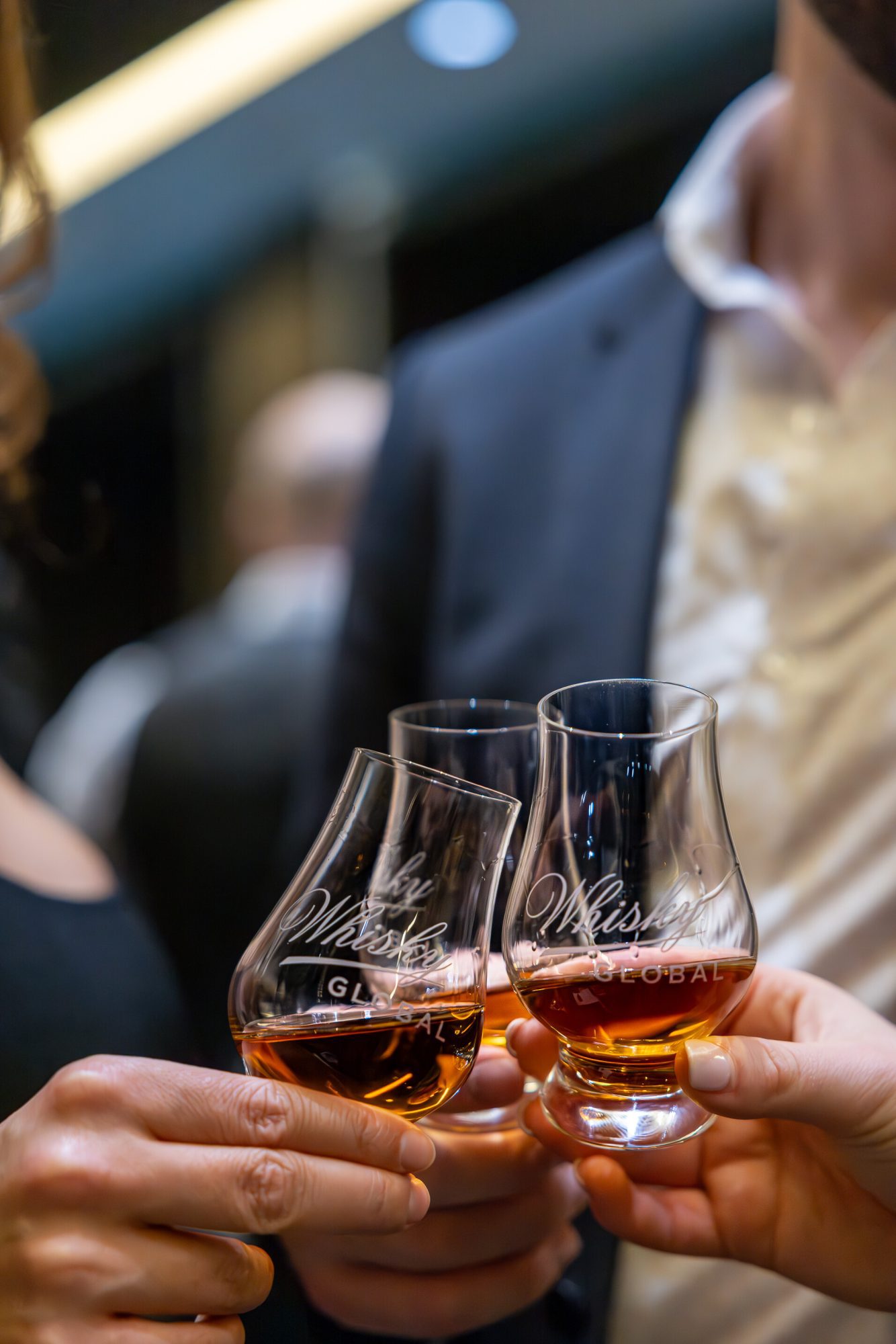

What are some of the bottles or brands you’re really excited to have on display at the festival? Anything rare or unexpected?
Adam Bloch: We have had an amazing reception to the expansion to Toronto; as a result, we have so many brands involved. Guests can see which brands are showcasing on the website, and although we usually like to keep the exact details of whats being poured as a surprise, I know that Benromach is bringing their 40-year-old expressions, which will be the most expensive whisky ever showcased at Whisky Global. We also have some amazing brands like Bruichladdich, Ardbeg, and Lagvaulin for fans of peaty whiskies, and Nikka, the iconic Japanese brand that opened the door for all of Asian whisky.
It sounds like it’s not only a great opportunity for attendees but also for brands to tell their stories and showcase the diversity of their portfolios. Is Whisky Global for whisky aficionados or newcomers, or both?
Adam Bloch: We’re 100% accessible to people who’ve never tried whisky before, as well as to hardcore enthusiasts. Whisky can be intimidating, but our event allows people to learn and experience it in a friendly setting. Brands come to connect with whisky drinkers, whether they’re new to it or experienced, and the idea is that hopefully, they’ll remember these experiences the next time they’re in an LCBO or liquor store.
Are there any additional activities or programming outside of the tastings to engage attendees?
Adam Bloch: Yes, there are four key elements: the whisky tasting itself, the food (whether it’s dinner or lunch), live music, and a masterclass series. The masterclasses allow attendees to step off the main floor and dive deeper into specific brands with a master distiller or brand ambassador. There are six sessions during each tasting, and they’re 20-minute classroom-style experiences where you taste two products and learn more in-depth about the brand’s history, techniques, and approach.
It’s a great way for people to take a break from the main floor, which can get busy. It’s not as chaotic as the New York Stock Exchange, but it’s a lot of people mingling, tasting, and enjoying whisky. The masterclasses provide a quieter, more educational experience.
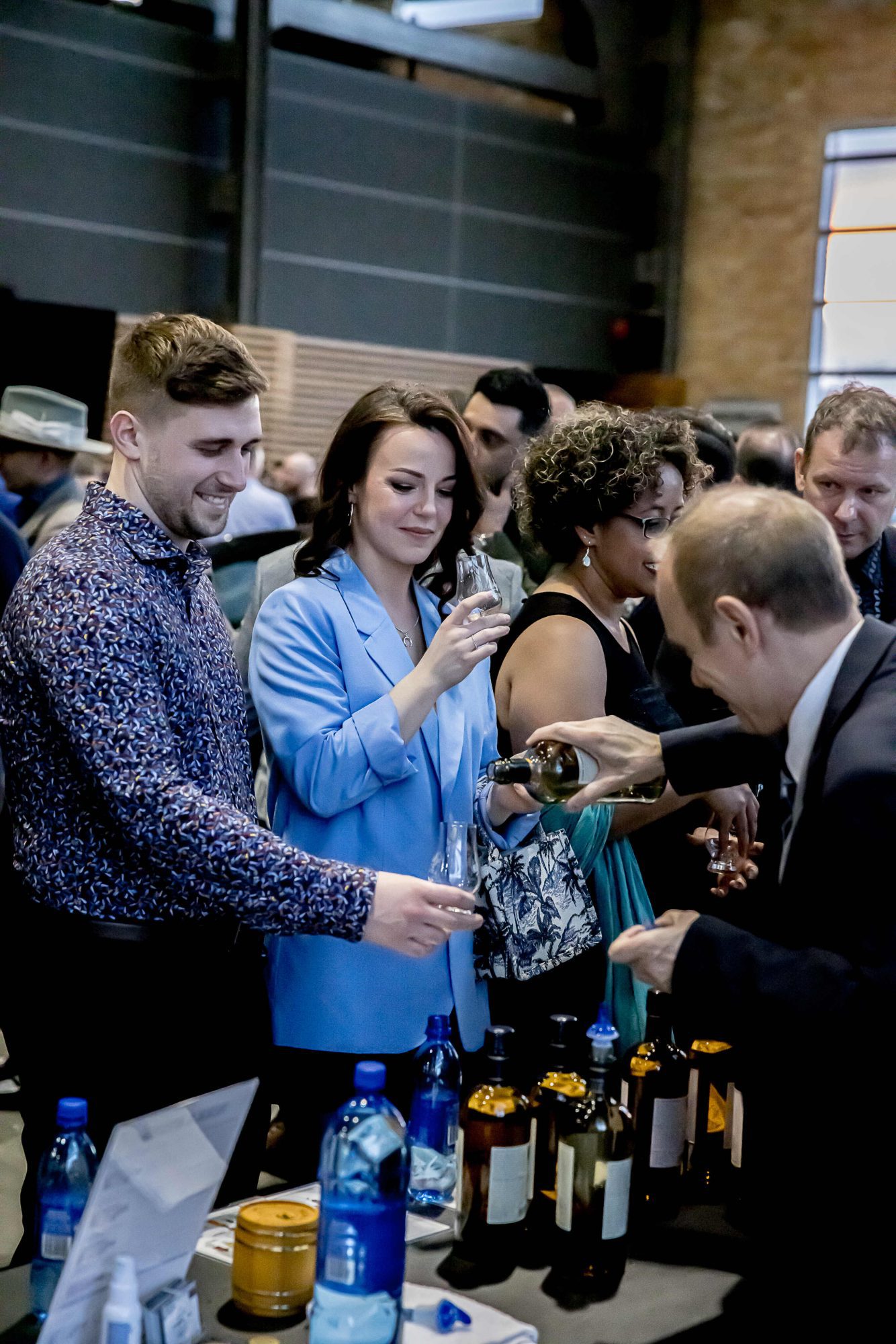

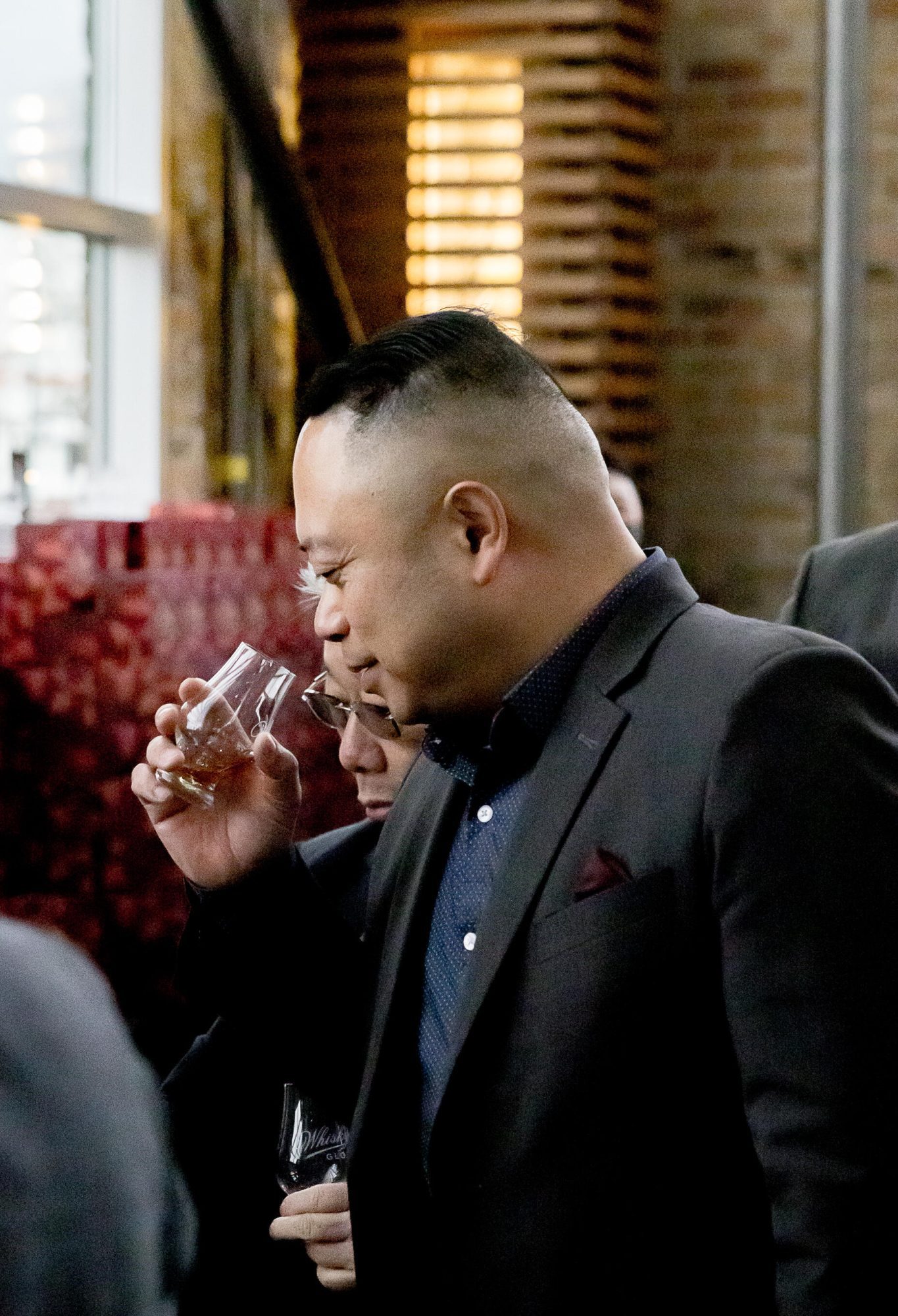

Organizing an event like this, especially on such a large scale, is no small feat. As a founder, how has your experience been in terms of building community and creating engaging experiences?
Adam Bloch: It’s something that I’m passionate about. I’ve been doing events like this for many years and all of the sudden, food, which was once just a part of the show to feed people, has become as important a showcase as the alcohol. We had a cocktail festival called Punchbowl which was always about RTDs (ready-to-drink cocktails), mixed cocktails, and tasting—showing people how to make amazing drinks. Now, it’s that and a taco festival. We have 30 different restaurants, all doing their own renditions of tacos, and now we get thousands more people coming just because they love the tacos. From a business standpoint, if we don’t evolve, the show dies.
You have to adapt.
Adam Bloch: Exactly. We took over a beer festival from some really enthusiastic beer connoisseurs who started it years ago. During the pandemic, it was about to go out of business, so we stepped in. Beer isn’t growing as fast as it once was, so we talked to the vendors and asked them what the challenge was for them. They said, “Everyone who comes to the show is a full-on beer nerd. These people already know about our brewery. We want to find the secondary tier of people—the ones who might go to the store and buy craft beer but aren’t obsessed with it.”
We thought that maybe this beer festival also needs a music aspect. Now, it’s not just about beer; we want attendees to enjoy good music, too. While we don’t have the Rolling Stones performing, we’ve had amazing bands like Bedouin Soundclash, Half Moon Run, and Capital Cities. People think, “I like beer, I like music,” and now the show continues to grow because we were nimble enough to evolve beyond just being a hardcore beer festival.
RELATED: The Monogram Forge, Where Luxury Meets Mixology in Your Home Bar
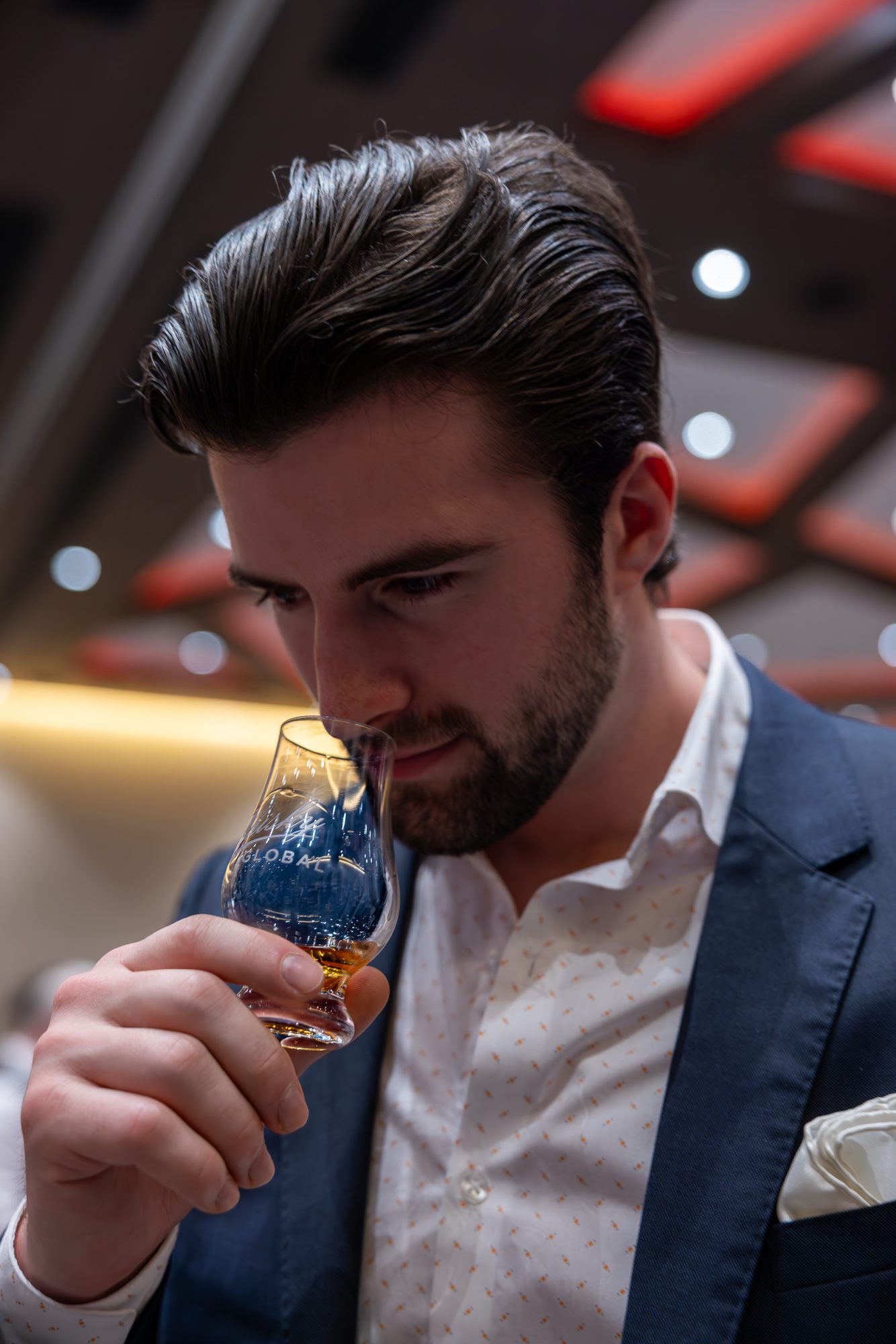

It gives you the versatility to position yourselves in different ways, especially as culture, community, and the economy shift.
Adam Bloch: Absolutely. In summary, we needed to layer the experience. It’s no longer just a one-dimensional event; there are multiple layers now. Our whole mandate is to keep prices down and offer incredible value. This is also true with Whisky Global, even though the tickets are higher priced, it’s a different kind of event with premium whiskies included, The value of what the client gets to sample at Whisky Global, versus trying all of these in a bar—there is no comparison.
As we’re talking about the evolution of these experiences and how you’re evolving your audience, what do you see as the five-to-ten-year plan for Whisky Global?
Adam Bloch: Whisky Global is such an incredible show. The vendors need access to these people, and the audience clearly responds well to the ticket price and what they’re getting. It’s also a less challenging show for us to produce compared to a 7,000-person outdoor event where we need to build an entire city—bathrooms, infrastructure, all of it.
Ultimately, it’s not just a whisky show—Whisky Global has a different vibe. The brands are also getting what they need in terms of consumer response. Our plan is to grow this brand. We’re looking to expand into a few more cities, but at some point, we’ll run out of Canadian cities big enough to host something like this. Then the goal is to take it to the US. We want to become the whisky Festival of North America. After that? Who knows—maybe one day we’ll be the international whisky festival. But for now, we want to own the Canadian market and make it the go-to whisky festival for the country and continent.
With so many global options, how do you ensure there’s a diverse range of brands and experiences for attendees?
Adam Bloch: There are a lot of factors. First, we look at the venue footprint. The Toronto venue is much smaller than Calgary, so we have to determine how many vendors we need to accommodate the expected audience. There’s a ratio we use to figure out how many people can be in the venue per booth, so we don’t overwhelm any one spot. We’ve refined that ratio over the years. We also want a good mix of Scotches, Japanese whiskys, and others. If it was all Canadian whisky, we wouldn’t sell as many tickets, especially at a premium price point. On the other hand, if it was all Scotch, it would be well-received, but Ontario has limited availability, so people would already know what’s there.
It’s not an art—it’s more of a puzzle. We need a wide range that fits within our price points. We also work with agencies representing brands locally. One agency might have The Dalmore and Jura, but they might also represent a brand like Bearface. Every province has different liquor systems too, which adds complexity.
For example, Alberta’s liquor system is like the Wild West—you can find 20 times more whisky in Calgary than in Toronto because the system is more open. Each province is different, which affects the range of products available.
What is your best advice for making the most of the Whisky Global experience?
Adam Bloch: First, dress well! We encourage everyone to dress up in what we call “cocktail casual” to add a special element to the event. It’s not a strict dress code, but we like to see everyone dressed nicely. Second, we’re releasing an app for the first time, which will list all the products. You can go through the tasting notes and descriptions beforehand to create a checklist of what interests you. And third, go in with an open mind.


